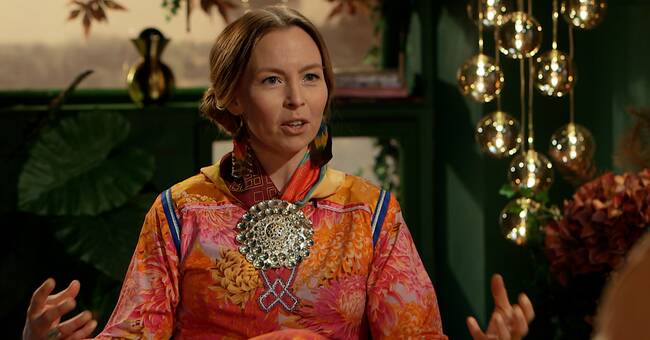Sofia Jannok is an artist and activist for Sami rights.
In Sweden!
she talks to Fredrik Önnevall about a counter-question that she has long dreamed of asking everyone who wonders what it is like to be Sami.
- I think it is more interesting to ask: What is it like to be part of a colonial people?
What is it like to walk around in an area where every single place is in Sami but you can not pronounce it?
And know that this has been stolen.
That you maintain the oppression only through your own everyday life?
"Does not feel so good"
Fredrik Önnevall, host, she wonders if she has ever asked that question to anyone.
- No.
But I can set it now, for you!
How does it feel to be part of a colonial people?
- It does not feel so good, says Fredrik Önnevall.
It feels like ... you get a big rock on your shoulders that you yourself have not been a part of.
But which you have to carry around collectively.
It can feel both unfair and unintended at times.
"Sami land has been claimed"
Marie B Hagsgård is a lawyer and expert on the Council of Europe's Advisory Committee on the Framework Convention for the Protection of National Minorities.
She thinks that in several ways it is reasonable to talk about a colonization of the Sami territory, but that it depends on what you put in the word.
- It is an eternal discussion about who was first, but before the borders of Norway, Sweden, Finland and Russia were drawn, the Sami were there, she says.
Marie B Hagsgård says that the Swedish state from the 17th century onwards encouraged agricultural colonization of northern Sweden.
This meant that the Sami began to be pushed away from their traditional lands.
Later, various forms of exploitation for hydropower, forestry and mining took up traditional Sami land.
Truth Commission
The government and the Sami Parliament want to see a truth commission that will go to the bottom with historical abuses against the Sami.
Last year, the Sami Parliament received funding to anchor such a process among the Sami people.
- Sami have been exposed to racism throughout history, and are still exposed today.
It also testifies to a great ignorance among the majority population about the Sami people, their living conditions, culture and history and rights as indigenous peoples.
Sweden must be a country free from racism and efforts are needed for us to get there, said the then Minister for Gender Equality Åsa Lindhagen (MP) in the announcement in a press release from the government.
Do you want to see the whole interview with Sofia Jannok? See the cultural program Sweden! Saturday at 19:00 on SVT1 or already now on SVT Play.

